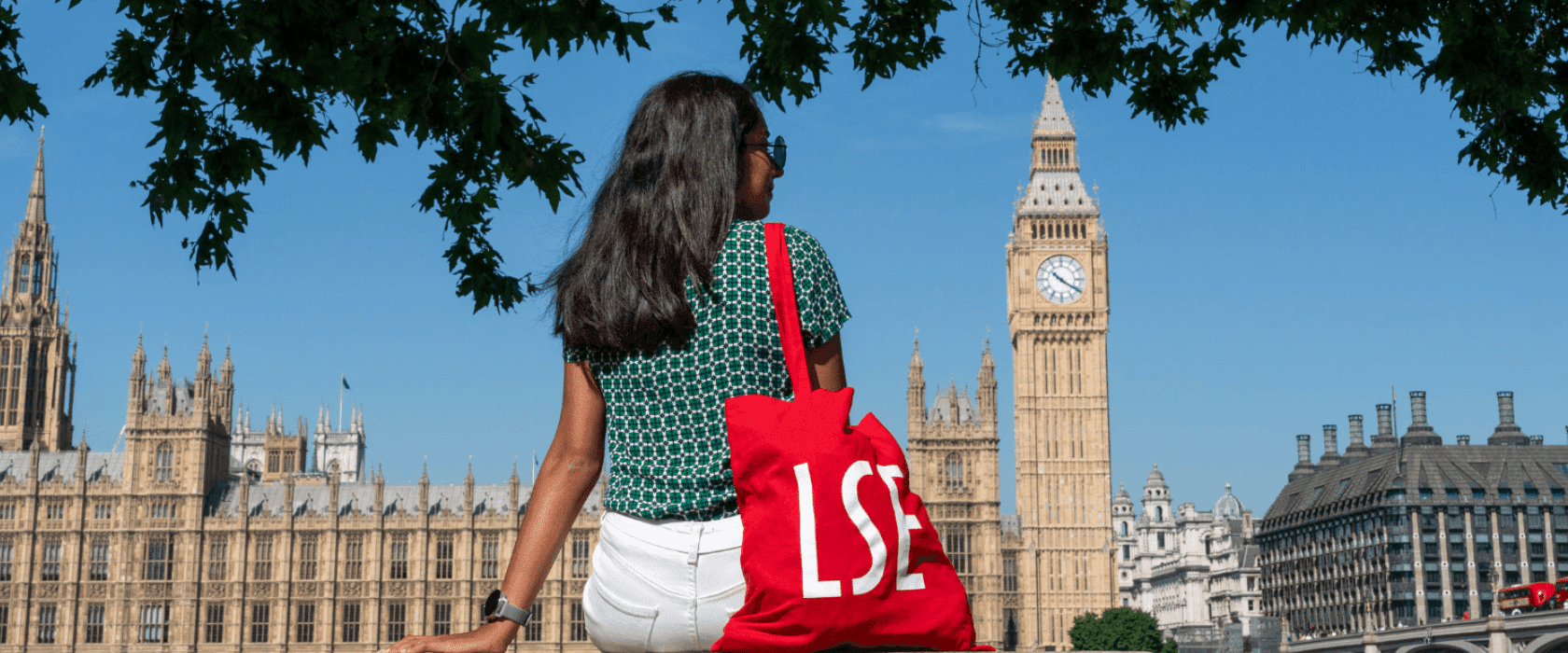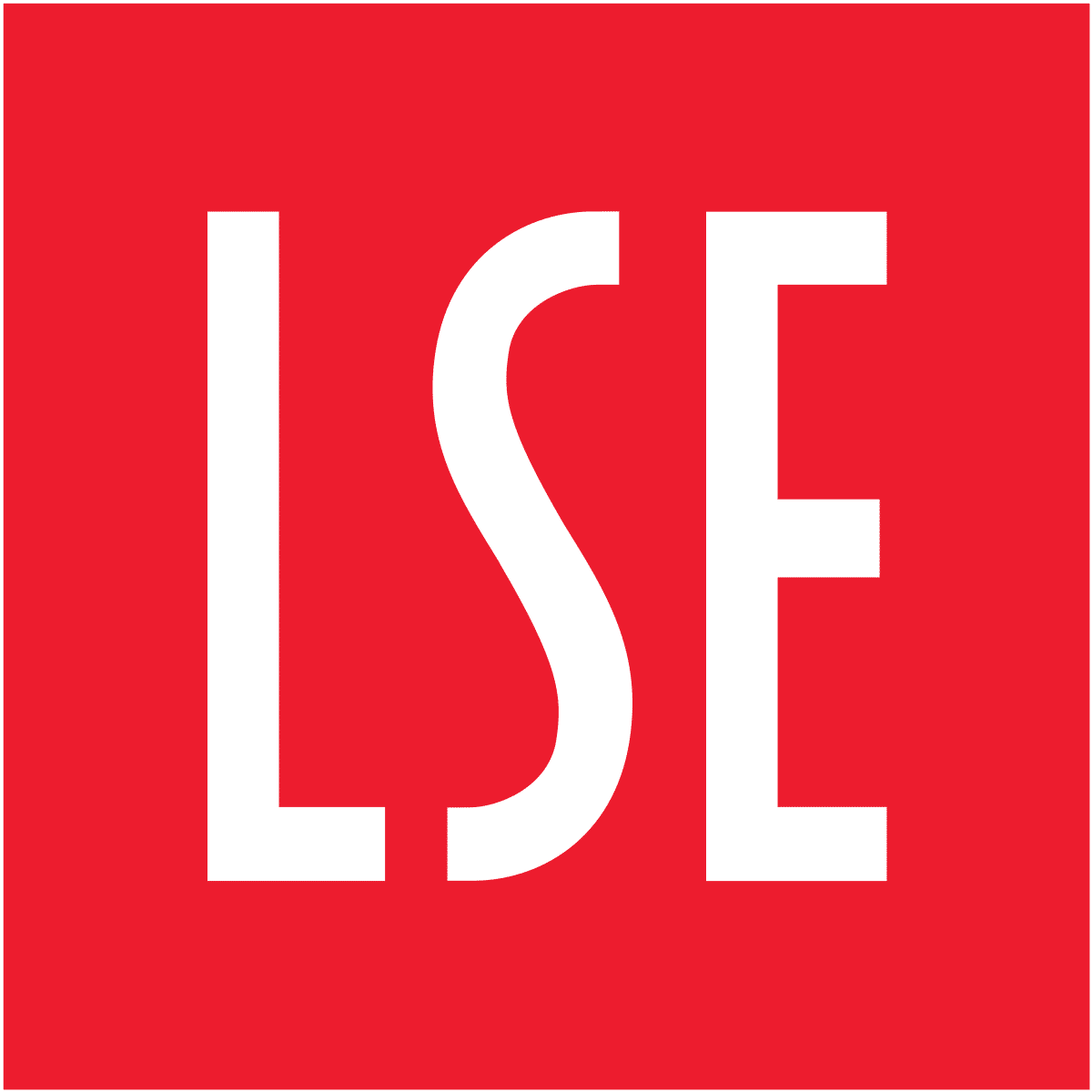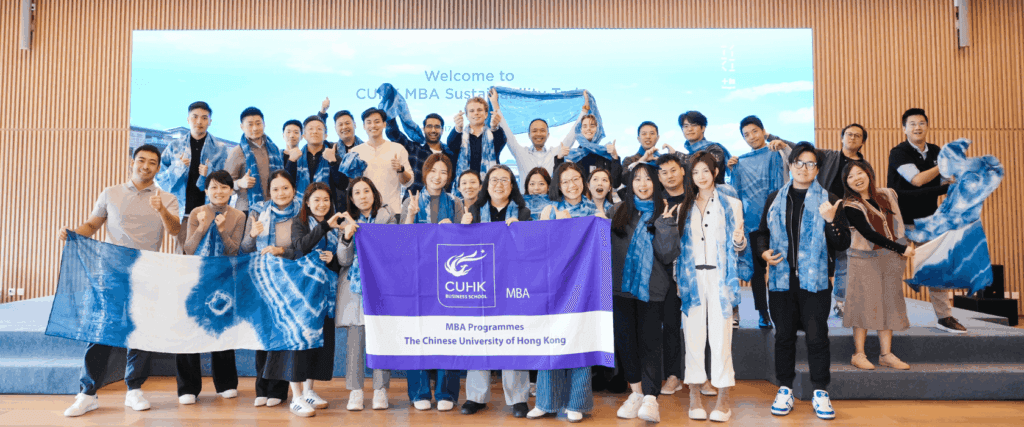A Program For Leaders Who Want More Than Titles
Students at the London School of Economics and Political Science (LSE) in the Executive Master’s program are already professionals making strategic decisions. Therefore, the question isn’t how to break into leadership, it’s how to lead with greater clarity in a constantly shifting global context.
Whereas MBAs are well-established as a stepping stone into managerial roles, the Executive Global Master’s in Management focuses on applying real insights to the real world.
The Program Director of LSE’s Executive Global Master’s in Management, Christine Côté, shares, “Our team’s vision for the program is very much on staying relevant when it comes to the trends happening globally. How do those [trends] impact business decisions?” (01:45)
A cornerstone of this approach is the program’s international field modules, where students engage directly with businesses in both emerging and established markets. Past destinations have included South Africa, India, and China.
“It really help[s] students take the theoretical concepts and understand them in the real world,” says Dr. Côté. These case-based lessons come directly from company visits where students connect academic ideas with executive-level decisions happening. (03:12)
The result is a degree that goes beyond academics. The LSE Executive Global Master’s in Management equips leaders to not just study decisions theoretically but to understand the context in which they occur.
Why Executives Choose LSE to Broaden Their Skills
Having beaten Oxford and Cambridge to top the rankings in The Times’ University of the Year 2025, LSE’s reputation precedes it. The Times cited excellent graduate prospects, research quality, and continuation rates in choosing it as the winner. Similarly, it recognized improved scores for teaching quality and student satisfaction.
The School’s reputation isn’t lost on Dr. Côté. She highlights, “LSE is a huge selling point. It has a fantastic reputation. We have top-notch faculty.” (01:17)
LSE faculty aren’t just publishing in journals. Faculty member Dr. Rebecca Campbell previously influenced the UK government’s national retirement policy. At the same time, Dr. Mia de Kuijper, a former Wall Street executive and strategist for PepsiCo, continues to advise Fortune 500 companies and international organizations on corporate strategy and innovation.
International business education in London has benefits outside the classroom, too. Dr. Côté attests, “I think London is also an attraction to students.” (01:26)
The Global Alliance of SMEs positions the British capital in “a league of its own” due to its combination of knowledge excellence, international headquarters, diversity, and connectivity.
This environment brings together a plethora of diverse ideas in direct response to what’s happening in the world of business.
LSE’s Christine Côté Leading Through Academia and Industry
As Program Director, nobody is more familiar with the Executive Global Master’s in Management than Dr. Côté. She reflects that, “I’ve been involved with it since its inception…over 10 years ago.” That continuity gives her a long view on how the program has adapted to shifting global business dynamics, and where it’s headed next. (00:59)
She has molded the program’s development and delivery, especially the International Business Strategy and Emerging Markets course. As a member of LSE’s International Trade Policy Unit, she has advised on trade negotiations at the World Trade Organization (WTO) and the Organisation for Economic Co-operation and Development (OECD).
Dr. Côté offers a wealth of first-hand experience. She continues, “Having spent quite a lot of time in the business world, as well as working for [the] government. I tend to bring a lot of that perspective into the teaching that I do.” (00:44)
Her expertise ensures the curriculum stays current both in business best practices but also in the wider global context.
Where Critical Thinking Meets Real-World Decision-Making
The Executive Global Master’s in Management is for working professionals with deep experience. The program challenges students to go beyond memorizing business concepts. Students are challenged to question, apply, and reimagine business concepts instead.
As the program guide explains, you won’t just learn the mechanics of management, you’ll understand the principles that drive it. Students build a toolkit that spans disciplines. Courses include everything from Organisational Behavior and Leadership to Strategy, Organisation, and Innovation. In Managerial Economics, they learn how market structures affect everyday business decisions. In Marketing Strategy, they investigate how consumer behavior is evolving through data and digital tools.
Assignments come in many forms. Group projects, problem sets, and presentations all take place periodically throughout the program. A final dissertation or capstone project allows students to apply their learning to a real business challenge. Many projects are tied directly to students’ current roles or industries, making the outcomes as practical as they are personal.
At its core, the curriculum is about sharpening your judgment in a world where the stakes keep rising and the answers aren’t always obvious.
Learning Across Borders, Not Just Books On the LSE Executive Master’s
One of the defining features of the Executive Global Master‘s is its immersive global structure. While five of the program’s seven modules are based at LSE in London, two take place overseas. These modules take students out of their usual context and into the heart of unfamiliar, fast-moving environments.
Locations are chosen for their strategic importance and connection to course content. Places like India, South Africa, China, and Turkey offer dynamic and diverse landscapes. Dr. Côté explains the strategy. “We want to be going to markets with our students, which are the most relevant markets today.” That mindset ensures the program maintains relevance and evolves alongside global business. (02:00)
Each international module combines lectures, company visits, and talks from local industry leaders. Students engage directly with executives navigating real challenges, from supply chain innovation to scaling social enterprise. Through these experiences they gain both knowledge and global perspective.
A Cohort Built For Challenge, Not Comfort
The Executive Global Master’s in Management at LSE isn’t just shaped by its curriculum, it’s shaped by its students. The program is built on diversity in every sense: geography, industry, discipline, and perspective. This isn’t incidental, it’s intentional.
“The new generation of leaders are just extremely international,” says Dr. Côté. “At least the ones we’re attracting to the LSE. Seventeen nationalities were reflected in this incoming group this year.” That range creates a cohort dynamic that’s more of a roundtable than a lecture hall. (02:26)
The program actively seeks candidates who are comfortable asking hard questions and exploring complex answers. As Dr. Côté puts it, ideal students are “intellectually curious, interested in delving deeply into understanding and solving problems…and aren’t afraid to do that through an analytical or theoretical lens.” (02:44)
This makes every discussion a negotiation of perspectives, and every assignment benefits from the experience of a global peer group. The result goes beyond a strong network. It creates a community of leaders who think differently and carry a global and open mindset into every decision they make.
How the Executive Global Master’s in Management Stays Relevant in a Changing World
As industries shift and global dynamics evolve, the Global Master’s continues to refine what it teaches.
For Dr. Côté, this is non-negotiable. “If I look to the future,” she says, “we want to continue to attract global business leaders from around the world. Our goal is to continue to foster that intellectual curiosity even as the world evolves because it’s really at the mainstay of what makes us relevant.” (03:18)
That future-facing approach is built into the program’s DNA. Modules are updated to reflect emerging themes, whether that’s digital transformation, sustainable growth, or geopolitical risk. The overseas components adjust in tandem, targeting the markets that matter now, not ten years ago.
But perhaps what’s most forward-looking about the LSE Executive Master’s is its refusal to treat education as a one-size-fits-all experience. As the program guide states, the program covers the same essential curriculum as a traditional MBA but takes a fresh approach to these topics to develop you as a thoughtful leader.
Want to study at London School of Economics? Take our eligibility quiz to see if you qualify!







